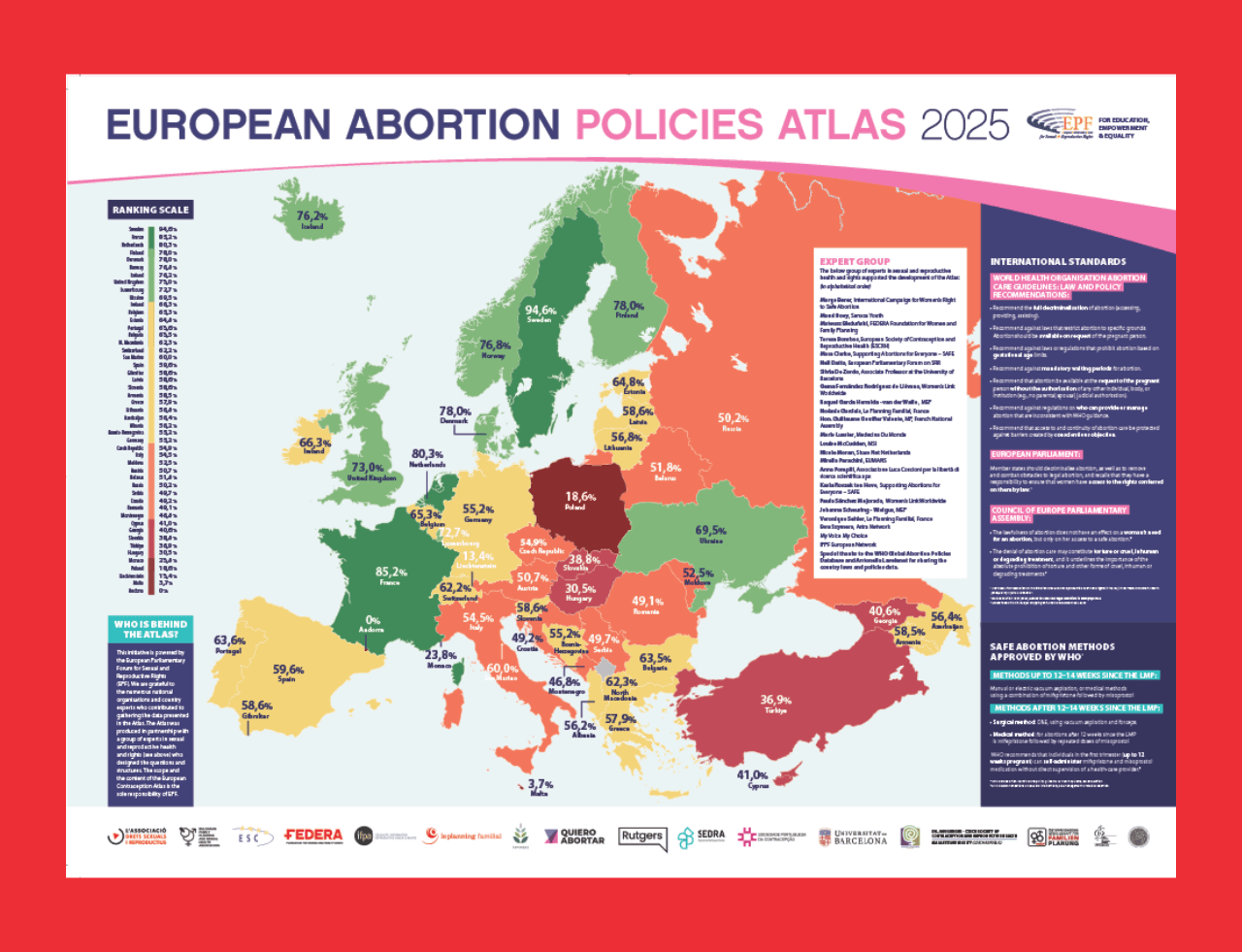This statement is made on behalf of the Federation for Women and Family Planning.
Poland has yet failed to implement any of the recommendations it accepted pertaining to sexual and reproductive health from the previous Cycles. The situation is getting worse each year because of Polish authorities’ activity and abandonment.
First, Poland has one of the most restrictive abortion laws in Europe. However, hospitals’ arbitrary and unlawful procedures, abusive performance of conscientious objection, lack of proper information for patients, criminalization of abortion, stigmatizing environment and a strong “chilling effect” on doctors lead to the situation when pregnant women have no option to obtain safe medical service in public hospitals and consequently seek an abortion in unsafe conditions of so-called “abortion underground” which already has enormous quantity (estimates show numbers between 80 and 150 thousands illegal abortions a year).
Second, the next restrictive draft bill aimed at banning abortion because of foetus’ disability is being prepared. The anti-choice organisations are collecting signatures under this project these days. If such law becomes binding, women will be forced to give birth to impaired and incurably ill children and sometimes even observe them suffer and die.
Third, the access to contraception is constantly limited, four months ago Polish parliament enacted the amendments bringing back medical prescriptions for emergency contraception. This way Poland is one of last four countries in Europe with such requirements.
Fourth, the new curriculum of the subject Preparation for Family Life is far from real comprehensive sexuality education and incorporates patriarchal and discriminatory stereotypes and religious views on matters of reproductive health and private life.
Fifth, the newest legislative proposal prepared by Polish Ombudsman for Child’s Rights reveals the approach treating women’s bodies and fertility as a subject to scrutiny. Namely, draft amendments suggest forcible isolation of pregnant women who drink alcohol in hospital for months.
Sixth, the European Court of Human Rights found Poland responsible for human rights violation on the issue of access to reproductive health services in judgments Tysiąc v. Poland (2007), R.R. v. Poland (2011) and P. and S. v. Poland (2012). These judgements have been still not executed.
During the 27th session of the UPR France, Australia, Sweden, Norway, Iceland, Canada gave the recommendations to ensure that women are given the medical and professional services necessary to exercise their legal right to terminate a pregnancy, and ascertain that women have the right to decide over their own bodies. Iceland and the Netherlands recommended to implement fully and effectively the judgments of the European Court of Human Rights on access to abortion. Slovenia urged Poland to expand the scope of the compulsory course on family life education to provide a comprehensive and age-appropriate education on sexual and reproductive health and rights and to ensure unimpeded access to sexual and reproductive health services, including to safe and legal abortions.
We call on the state of Poland to fully and effectively implement the recommendations received during the 3rd cycle of the Universal Periodic Review process and comply with international reproductive rights standards.




